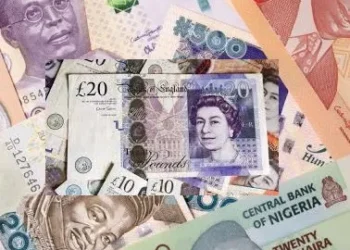The exchange rate between the Nigerian Naira and the United States Dollar fell to N803/$1 at the investor and exporter window on Friday, July 15, 2023. This marks the lowest level the exchange rate has reached since Nigeria adopted the managed float exchange rate system, and it is also the first time the rate has closed above N800/$1.
The closing rate of N803/$1 represents a notable decline of 7.3% from the beginning of the week, when it closed at N744/$1. The downward trend in the exchange rate became evident when it closed at N776/$1.
Data from the Financial Markets Dealers Quotations (FMDQ), where the exchange rate trades unofficially, reveals a 7.72% depreciation, with the exchange rate falling from the previous day’s closing rate of N746.28 on Thursday, July 13, 2023.
The forex turnover at the investor and exporter window was reported to be just $46.9 million, indicating a substantial decline of 46.33% on a day-to-day basis. This figure also represents the lowest point since May 2nd, 2023.
Interestingly, the market registered a record intra-day high of N829/$1, surpassing even the parallel market rate. However, the intra-day low was recorded at N689/$1. It is worth noting that the intra-day high is the lowest ever observed for the exchange rate since the revised investor and exporter window was launched.
Checking the parallel market, similar downward movement in the exchange rate is observed, as it fell to N815/$1 based on research conducted by Nairametrics.
At the peer-to-peer (P2P) window, where the exchange rate is traded using cryptocurrency stable coins, rates were reported to be around N817/$1.
Moreover, rates also experienced declines against other major currencies such as the Euro and British Pound, trading as low as N885/$1 and N1050/$1, respectively.
Meanwhile, Nigeria’s foreign exchange reserves closed at $34 billion as of July 11th, 2023.
Bureau de Change (BDC) operators remain excluded from the market, with their absence continuing to impact the foreign exchange market significantly. BDC operators have expressed their advocacy for increased participation and involvement in the foreign exchange market to ensure the success of the new exchange rate policy implemented by the Central Bank of Nigeria (CBN).
Gwadabe, the chairman of the BDC operators, emphasized the importance of the BDCs in achieving stability, stating, “The volatility of the naira continues to underpin the slow economic growth of Nigeria. The investor and exporter window is laudable, it’s patriotic and nationalistic, but there is no policy that can actualize its mission without carrying the interest of the subsector (which is the BDCs). The investor and exporter window is supposed to run on three legs, the banks, the CBN, and the BDCs. Overtly or covertly, the BDCs are missing.”









